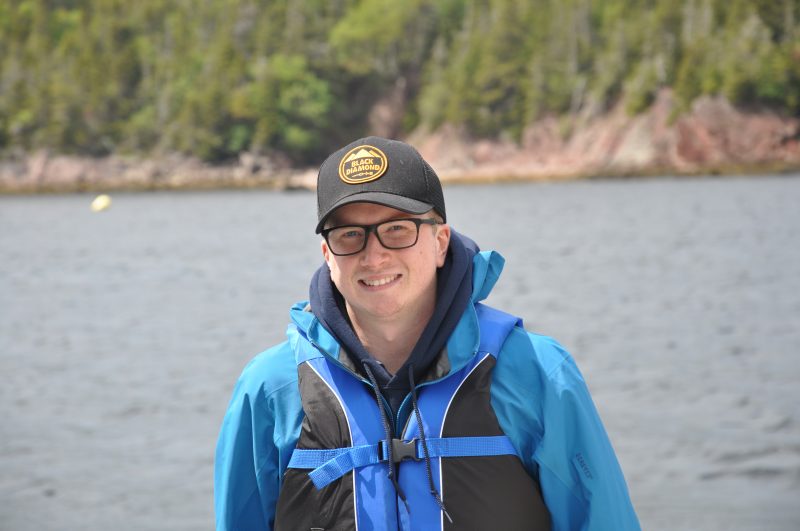Aquaculture Ambassador: Liam O’Leary
“Coming from a family of fishermen I always had an appreciation for the ocean and the resources it contains. Aquaculture interested me because I saw it as the future of fishing,” Liam O’Leary, Council for Emerging Leaders in Aquaculture.
By Samantha McLeod
SeaWestNews
Aquaculture in Canada today generates $5.16 billion in economic activity and employs over 25,000 people. As one of the fastest growing food sectors in the world, the industry in Canada has a younger-than-average domestic workforce with two-thirds of all employees under the age of 35. Our new series, Aquaculture Ambassador, is about 14 Canadians who have come together to showcase the growing presence of young people in the sustainable future of farming the oceans. In this segment, we talk to Liam O’Leary, Aquatic Resources and Economics, St. Francis of Xavier University.
Tell us a little bit about yourself?
I am a fourth-year student at St. Francis Xavier University, where I am currently enrolled in an advanced joint major in Economics and Aquatic Resources. I’ve studied the biological, political and sociological impacts various water systems have on society, my interests are resource management, local community development and fisheries. When I am not studying, I am usually listening to music or hiking.
What drew you to aquaculture?
I have enjoyed the water for all of my life, and coming from a family of fishermen I’ve always had an appreciation for the ocean and the resources it contains. Aquaculture interested me because I saw it as the future of fishing. I was able to get even more exposure to aquaculture through the Newfoundland Aquaculture Industry Association, which deepened my interest in the industry.
What’s your average day in aquaculture like?
I worked with the Newfoundland Aquaculture Industry Association through a co-op program with my school. One of the exciting things about aquaculture is every day is different. My main tasks included organizing a youth engagement strategy as well as a jurisdictional cost analysis for the provinces aquaculture industry. The rest of my time included meetings, conferences and various work trips around the province. The work was challenging, exciting and most importantly fun.
How do you plan to change the current narrative about aquaculture, in particular salmon farming in Canada, from conflict to conversations about sustainability?
Changing the current narrative about aquaculture is one of the biggest challenges faced by the industry. I plan on changing this through always being transparent, and by finding creative ways to educate the public in how aquaculture can do great things. Being transparent is critical because this improves the public’s trust in the industry, which leads to a change in the social licensing of the industry. Educating the public is a direct way of changing the narrative and doing this in a creative way is what is key. I believe by showing people the good that we can do, it will lead to people being more informed, and making a more positive decision about the industry.
What is the single biggest project you are working on now?
As I am still in school, I don’t have huge projects directly linked with the industry. However, I am writing my senior research paper on the economic impacts of aquaculture, I’ve been working on it for months and I am very excited to see where it goes. My main research question is to see if aquaculture can be a valid industry to revitalize rural communities.
RELATED LINKS:
Meet the future of Canada’s sustainable aquaculture industry
